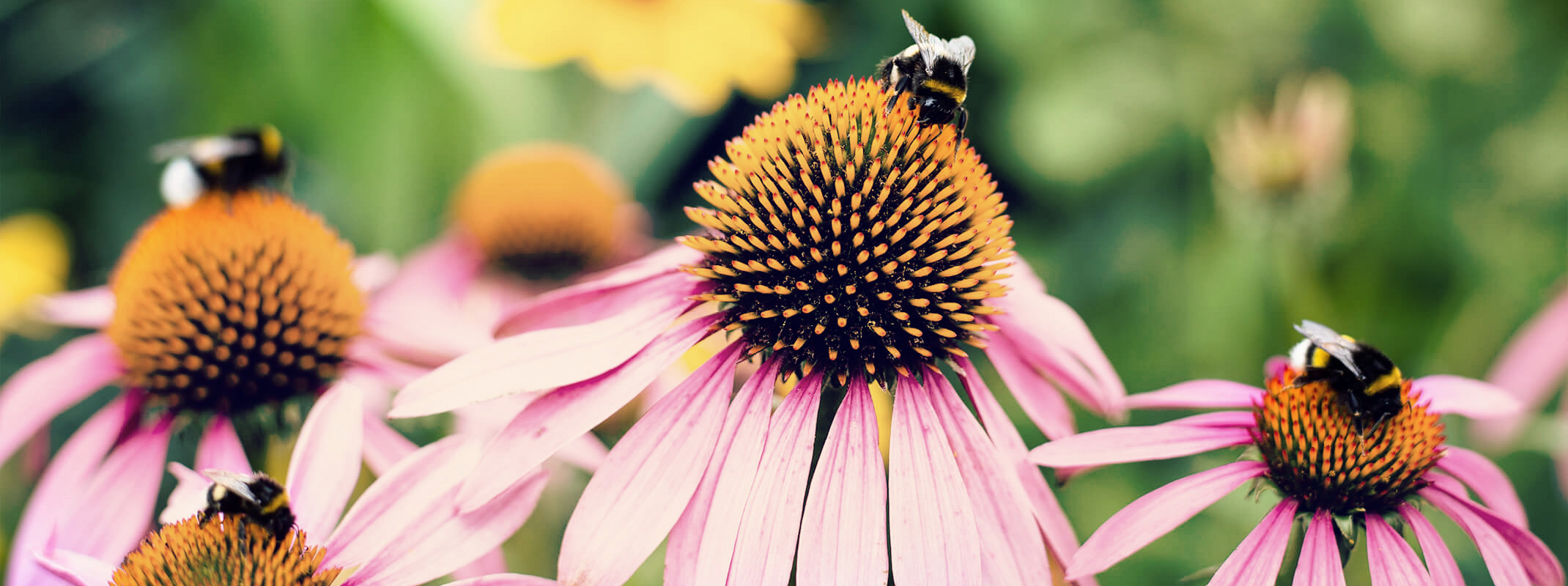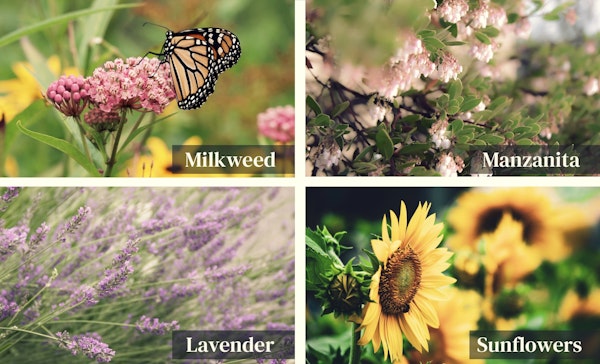 Back to the Be Inspired Blog
Back to the Be Inspired Blog

Understanding Bees and How to Attract Them in Your Garden
Bees play a crucial role in our world, especially in our gardens. They’re not just buzzing insects—they’re essential pollinators for the fruits, vegetables, and flowers we love. Here’s how you can help these important creatures thrive right here in the Bay Area.
Why Bees Matter
- Pollination Powerhouses: Bees pollinate 75% of fruits, nuts, and vegetables grown in the U.S. Without them, crops like almonds, apples, and avocados wouldn’t exist.
- Environmental Stewards: Bees support biodiversity by pollinating wildflowers that feed birds and other wildlife.
- Food Web Guardians: Beyond human needs, bees help sustain ecosystems by supporting plants that provide food and shelter for countless species.
Bees Are in Trouble
Despite their importance, bee populations are declining due to habitat loss, pesticide use, and climate change. You can make a difference by creating a bee-friendly garden that provides food, shelter, and safety.
How to Attract Bees to Your Bay Area Garden
Plant Bee-Friendly Flowers
Choose plants that are rich in nectar and pollen, especially those native to California. These are perfectly adapted to the local climate and require less water—a win for you and the environment.
Top Plants for Bees in the Bay Area:
- California Poppy (Eschscholzia californica)
- Ceanothus (Ceanothus spp.)
- Manzanita (Arctostaphylos spp.)
- Milkweed (Asclepias spp.)
- Lavender (Lavandula spp.)
- Bee Balm (Monarda spp.)
- Sunflowers (Helianthus spp.)
Provide Habitat
- Leave Bare Soil: Many native bees nest in the ground, so avoid mulching every inch of your garden.
- Install Bee Hotels: Create or buy structures where solitary bees can nest.
- Plant Diversity: Include a variety of plants that bloom at different times of the year to provide a continuous food source.
Avoid Pesticides
- Use organic or bee-safe alternatives to control pests.
- Apply treatments in the early morning or evening when bees are less active.
Bee-Friendly Gardening Tips
- Go for Single Flowers: Single-petaled blooms produce more nectar and pollen than doubles.
- Set Up a Water Station: Place shallow dishes with water and pebbles for bees to safely land and drink.
- Plant in Clumps: Group flowers together to make it easier for bees to forage efficiently.
Bees Need You—Here’s How You Can Help
By creating a habitat for bees in your garden, you’re not just helping pollinators—you’re supporting a healthier, more vibrant ecosystem. Visit your local SummerWinds Nursery for bee-friendly plants, seeds, and advice to make your garden a pollinator’s paradise. Together, we can make a difference for the bees and the planet.
Stop by SummerWinds Nursery today to explore our selection of bee-friendly plants and products!

